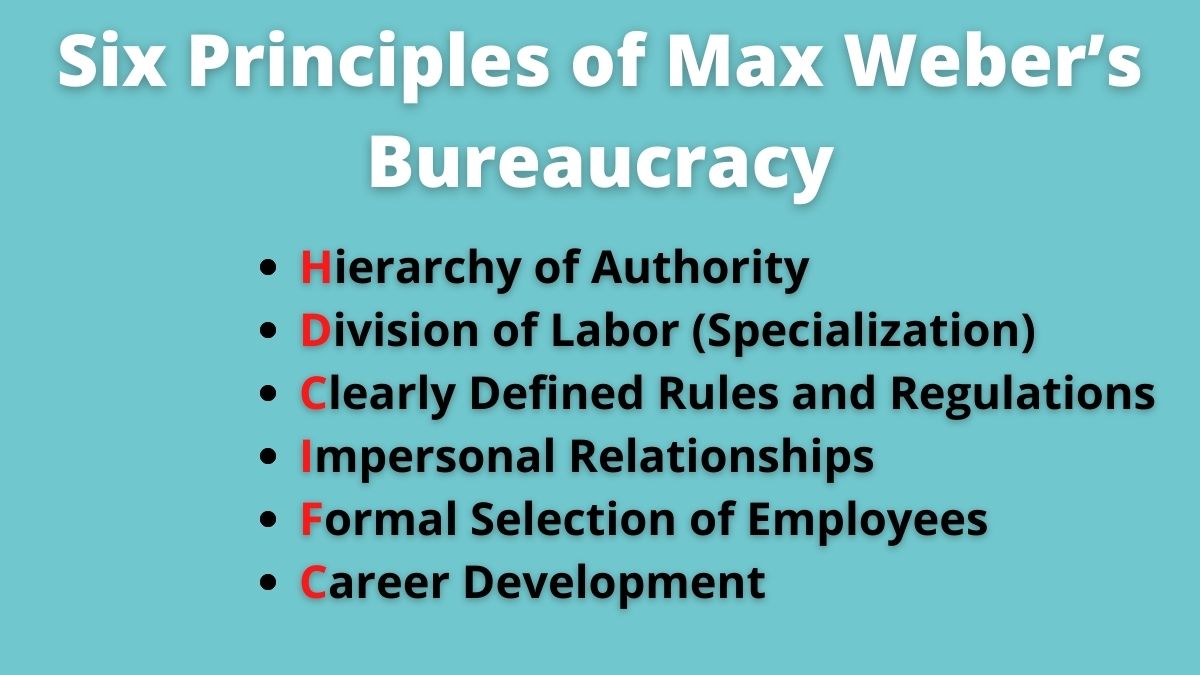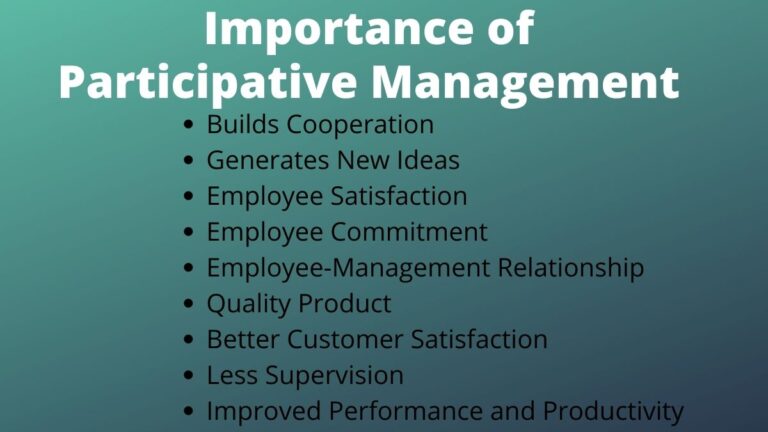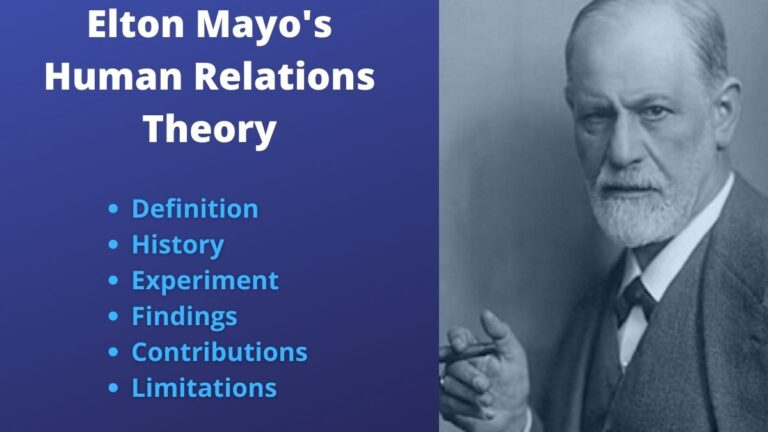Six Principles of Max Weber’s Bureaucracy Theory (Explained)
Principles of Bureaucracy Theory
Bureaucracy can be defined as the structure of an organization that has formality and impersonality in its operation. Max Weber as a father of bureaucracy provided us with six different principles that bureaucratic organizations operate on.
As a member of the classical movement of management Weber’s goal was to increase the productivity of the organization and he thought the bureaucratic approach to management was ideal for it. He claimed bureaucracy brings productivity by ensuring effectiveness and efficiency in planning, decision-making, employee selection, work division, and control.
Let’s discuss the six principles of bureaucracy theory (also called the bureaucratic theory of management).
Hierarchy of Authority
The hierarchy of authority refers to the layers of management in the organization. Weber stated there should be a clear hierarchy of authority in the workplace which should state who has to what extent of authority and responsibilities.
Authority hierarchy clearly states the position of employees in the organization from the top to the lowest levels. According to position employees have authority and responsibilities to execute the given task.
A clear hierarchal structure lessens the confusion of employees since they know who are their seniors and juniors, to whom they have to report, to whom they are responsible, from whom they get orders, etc. As such, the degree of working efficiency is increased.
Usually, in the hierarchy of authority, three levels of management include – top, middle, and lower. The top manager is the head of the organization who supervises the lower levels, the middle manager works under the top manager & supervises the lower manager, and the lower manager works under the direct supervision of a middle manager.
Division of Labor (Specialization)
The next principle of bureaucracy is the division of labor. Weber emphasized that the complex and difficult tasks of the organization should be divided into its possible smallest parts so they can be done with ease and with no mistakes.
By this principle, the smallest task should be given to the right employees that best fit his/her ability, capabilities, and interests. That, the specific employee only should do the specific task.
Weber is in favor of the proper division of labor ensuring the specialization of employees. When the employees do a specific task only they specialize in it. The specialization, later on, reduces mistakes, saves time, increases efficiency, brings smoothness, and increases the productivity of the business.
If so, you should organize your employees into units based on their skills and capabilities and assign them specific tasks that they can do most simply and efficiently.
Also Read: Principles of Scientific Management Theory
Clearly Defined Rules and Regulations
Weber describes every organization must have clearly defined rules, regulations, and policies by which everyone should abide. These rules should be fundamental guidelines by which the company operates and managers and employees must accept and follow them despite their positions.
This principle states the rule is for everyone and everyone must follow it. Such clear rules and regulations bring unity in the workplace, and better coordination of employee effort is achieved since every employee is aware of what they are supposed to do in the organization.
Weber states in the firm everything should be done by these stated rules and regulations. The plans and decisions should be made following these rules instead based on random judgment. Activities such as grievance management, work procedures, employee selection, performance evaluation, and other necessary activities should be written and these activities done under these rules and regulations.
In addition, whenever rules and regulations are altered the top manager should be liable to pass them to lower managers and make them up to date. In short, this principle means there must be clear rules and regulations, and everyone working must know and follow them.
Impersonal Relationships
Impersonal is one of the most recognized principles of bureaucracy. While pointing to bureaucracy, the impersonal principle, and above mentioned one give the meaning of what Weber’s bureaucracy is.
For example, suppose you and your father work in the same organization. You certainly have conversations outside the organization (home) as father and daughter/son but according to this impersonal principle when you are in an organization you are not father and son you are employees of the organization. You both must have professional relations, not family relations.
The impersonal principle states there should be professional relationships in the workplace, and the relationships between employees and managers should be impersonal, impartial, and professional. Personal emotions, feelings, and things should be shifted to rational emotions that align with the organization’s goals.
In addition, impersonal states everyone should be fairly treated, judged, and evaluated in the organization. It tries to eliminate the practice of judgment or evaluation based on nepotism, favoritism, politics, etc. instead of emphasizing performance-based. This principle creates harmony in the organization and brings peace, employee satisfaction, morale, and coordination.
Formal Selection of Employees
This principle states that there should not be the practice of selecting vacant employees based on arbitrary judgment. It is focused on the selection of employees complying with the formally stated rules and regulations. The employees should be selected based on their technical skills, qualification, and experience they hold.
Weber believed that quality employees are essential for better organizational performance and productivity. The required employees for the organization should have the necessary qualifications to perform the given task effectively and efficiently.
Once the employees are formally selected, the right employee should be placed at the right job. Their performance evaluation and promotion should be based on what they did for organizational growth.
The fair selection and evaluation of employees increase their satisfaction and motivation and ultimately the productivity of the company.
Career Development
The last principle of Max Weber’s bureaucracy is career development. It states that there should be career growth options for the employees in the organization. It aims to push employees living standards by appointing the right employees, giving them the right jobs, and enough places to excel in their skills for a better career.
Weber states that for the career development of employees, an organization should guarantee to improve their living standards, provide job security, economic security, social security, physical security, give proper training, apply a suitable performance appraisal system, provide fair payment, etc.
A bureaucratic organization should not just exploit the talents of its employees rather it should ensure a way of personal growth for its employees is the theme of the career development principle.
Hence… These 6 principles of bureaucracy state that for an organization to achieve productivity through efficient and effectively performing activities should have a clear hierarchal structure, proper division of labor, clear rules & regulations, impersonality, proper employee selection, and career growth options for its employees.
Next Read: Scientific Management Theory
Sajan Kushmi is a content writer with more than 4 years of experience. He holds BIM Degree. He write on the topics related to Management, Marketing, and Entrepreneurship.







Very much educative, simple and clearly understandable
you are welcome.
Self explanatory without the help of anyone. Thanks!
You are welcome.